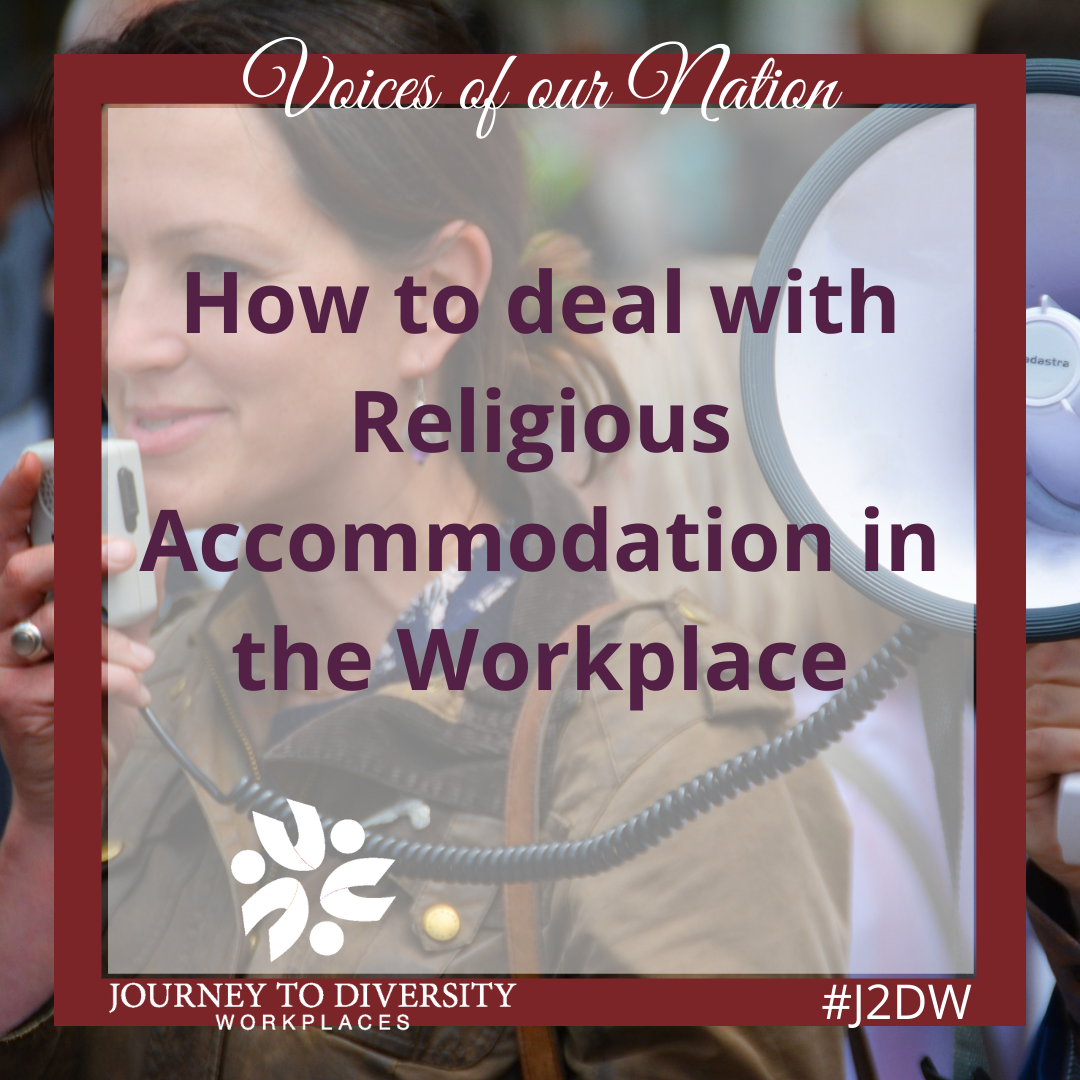Freedom of religion, in Canada, is a constitutionally protected right that allows religious believers the freedom to assemble and worship without limitation or interference. Religious discrimination is treating individuals differently in their employment because of their religion, their religious beliefs and practices, denying their reasonable request for accommodation or a change in a workplace rule or policy that denies employees equal opportunities due to their religious beliefs or practices. Canadian employers are required to accommodate the reasonable needs of religious employees in the workplace.
A workplace accommodation is any change in the working environment that allows a person with limitations in their abilities to do their job. These can include changes to physical workspace, adaptations to the equipment or tools used, flexible work hours or job sharing, relocation of the workspace within the greater workplace, the ability to work from home, reallocation or exchange of some non-essential tasks for others, or time off for medical appointments. Accommodations can be temporary, or long term, depending on the employee’s disability or medical issue.
In Canada, the limits to accommodation are described as either a “reasonable” accommodation or an accommodation to the point of “undue hardship.” In Ontario, under the Ontario Human Rights Code, three criteria are used to determine whether undue hardship exists which are cost, whether other sources of funding are available or health and safety requirements that may exist. Canadian employers are required to accommodate the Sabbath observance of their employees by permitting employees to take the day off unless doing so would create a hardship for their employers. Each Canadian province and territory has human rights legislation that covers religion protections.
The Ontario Human Rights Code makes religious discrimination illegal. Everyone should have access to the same opportunities and benefits. Religion includes the practices, beliefs and observances that are part of a faith or religion. Religion does not include personal, moral, ethical or political views. Religion also does not include religions that promote violence or hate towards others, or that violate criminal law. Christianity is the largest religion representing approximately sixty seven percent of the population while Muslim is the second largest religion accounting for three percent of the Canadian population. However, approximately twenty four percent of the Canadian population have no religious affiliation. If employees are asked to do something that would violate their religious beliefs, practices or customs, they may be able to get an exemption from these requirements for religious reasons. People should be treated with equal dignity, and respect, regardless of their religion. Workplaces can improve employee satisfaction and productivity by helping employees feel like they can be themselves and not having to hide a part of themselves in the workplace.
Harassment is a form of discrimination. Harrassment involves any unwanted physical or verbal behavior that offends or humiliates someone. Harassment is usually behavior that persists over time. However, serious one-time incidents can sometimes be considered as harassment. Bullying is usually seen as acts or verbal comments that could ‘mentally’ hurt or isolate a person in the workplace. Bullying usually involves repeated incidents or a pattern of behavior that is intended to intimidate, offend, degrade or humiliate a particular person or group of people.
The cost of accommodations for individual employees can be a significant concern as some workplaces lack the resources to effectively meet the needs of their employees. A reasonable accommodation can vary from employer to employer which may not adequately address the needs of the individual employees. Accommodating an employee could cause the unintended consequence of sterotyping the employee which could increase incidence of bullying or harrassment. Accommodations for attending religious services increases absenteeism, which can lower workplace productivity, or cause more stress on the other employees. Employers may find it difficult to provide non-religious employees with equal benefits to religious employees when religious accommodations are considered for a specific individual, or group, of employees.
Individuals with disabilities are entitled to be included in the workforce. Treating people equally does not always mean treating them the same. In some situations, equal treatment for employees with disabilities may require different treatment. It is important to remember that disabilities do not fit into a single category. While we all have an idea as to what constitutes a disability, these preconceived ideas are often quite limited. Employers have an obligation to accommodate workers who have a disability. This accommodation must be provided in a manner that respects the dignity of the person. There are no prescribed formulas for accommodations as every case is unique and should be pursued based upon the individual medical and employment realities. The interests of a workplace are best served by retaining people with injuries Retaining them means knowing how to plan and implement workplace accommodations. By effectively accommodating its employees a workplace cultivates a competent, effective, diverse and healthy workplace environment that can benefit everyone in the workplace.
Sources: Benefits Canada
Canadian Centre for Occupational Health and Safety
Ontario Human Rights Commission
Statistics Canada
This article was contributed by volunteer blogger Shan Simpson




